In affiliate marketing, search engine optimization, or SEO, is a crucial thing to learn for earning commissions. The better a website’s SEO ranking is, the more clicks it will get. More clicks can lead to an affiliate marketer earning more commissions.
There are plenty of websites and tools that help with SEO rankings, but one tool more affiliate marketers should look at is Google E-A-T. But it’s not uncommon for affiliate marketers to know what Google E-A-T is, or by extension, just how important it is for SEO.
This article will cover the basics of Google E-A-T and why it’s essential for SEO. It will also give some tips on how to improve a website’s E-A-T.
What is E-A-T?
Google E-A-T is a guideline that the famous search engine uses for determining a content’s value to readers and how well it’ll rank.
It was first mentioned in 2013 when Google added this concept to their 168-paged Search Quality Guidelines.
While it’s not a ranking factor, it can affect a content’s ranking. As a guideline, Google uses E-A-T to determine what content is high in quality and should have a higher rank. Some SEO professionals say this isn’t too important, but it does still matter.
So, what does E-A-T stand for, anyway? Since it’s an acronym, it has to stand for something, right? Well, here’s what each of the letters mean:
- E is for expertise.
- A is for authoritativeness.
- T is for trustworthiness.
But what do these words mean? These words may be similar, but they’re not the same. It’s time to take a closer look to learn what these words mean for SEO and how they’re evaluated.
Expertise
To have expertise in something means to have a lot of knowledge. When someone knows a lot about a certain subject, they are an expert in said subject.
In E-A-T, expertise is primarily evaluated at the content-level rather than at the website or organizational level. Simply put, Google looks for content created by an expert on a topic.
For topics about “Your Money or Your Life” (YMYL), Google is looking for a content creator’s formal expertise, like education and qualifications. For example, a pharmacist would be more qualified to talk about medications than a fitness coach who’s read a few posts about medication.
Some topics don’t need as much formal expertise. For topics not about YMYL, Google is looking for relevant life experience or everyday expertise.
Even some YMYL topics can fall under everyday expertise. For example, someone battling a chronic illness or disability will be more qualified to answer a question about said illness or disability than a doctor with years of research and experience.
Authoritativeness
If someone has a great reputation for something, that means they have a lot of authority. Affiliate marketers should strive to be a great source of authority for their niche.
When evaluating authority, raters search for insights into a website or individual’s reputation. Raters use independent sources when searching. Reputation research is used to find out what real users and experts think about a website.
One way for a website or individual to have high authority is to use sources that they themselves didn’t create. For example, Wikipedia is considered an authoritative website because it uses sources from other high-quality websites.
Some websites and people are uniquely authoritative on specific topics. For example, a chef is the most authoritative source for looking up their recipes.
Trustworthiness
When someone has a lot of expertise and authority about a specific topic, people are more likely to trust them. In other words, it means they’re more likely to believe that person’s content because it’s accurate and transparent.
There are a lot of things raters look for in trustworthiness, including whether a website states who publishes the content. Though this applies to non-YMYL searches, this is especially vital for YMYL searches.
Contact information is also crucial for trustworthiness. For example, if a consumer is having trouble with a transaction, they’ll need to contact the affiliate marketer. However, if the affiliate marketer only lists an email address as a contact source, the consumer will have a hard time contacting them.
Another vital thing for trustworthiness is accuracy. For example, news articles are trusted to have high-quality, factually accurate sources for a topic. That’s why it’s best to use websites with high authority as sources.
Why is E-A-T Important for SEO?
With what E-A-T is now sufficiently covered, it’s time to explain why it’s important for SEO.
It’s not uncommon for an affiliate marketer to hear the advice “create high-quality content” when starting out, but what exactly qualifies as high-quality content?
Google E-A-T considers content high quality if it is:
- Trustworthy
- Created by an expert
- Helpful to users
- Posted on an authoritative website
- Regularly updated
It’s best for content to be created by a high level of expertise, though everyday expertise from those with real-life experiences also counts.
Pages may receive a lower E-A-T rating if they:
- Cause harm
- Deceive users
- Give misinformation
- Spread hate
How to Improve Your Website’s E-A-T?
After learning the importance of E-A-T for SEO, it’s time to explain how to improve a website’s E-A-T. While Google doesn’t give websites E-A-T scores, there are still some ways to improve a website’s E-A-T and SEO ranking.
Tip One: Use Trustworthy Sources
Consumers should look towards the affiliate marketer for trustworthy information about a certain niche. One way for that to happen is to use trustworthy sources.
As stated before, websites with high authority rankings are trustworthy sources. If the affiliate marketer uses facts on their posts, they should back them up with appropriate links to authoritative websites. For example, a .edu page is a great authoritative source for various topics.
What else counts as a trustworthy source? Besides .edu pages, Google also recommends using websites like Wikipedia and Wikidata as trustworthy sources. However, it’s still best for the affiliate marketer to check to see if their sources check out.
To get the most legitimate information, the affiliate marketer should consider other viewpoints to see which ones contribute to a conversation. Every person is unique, after all. For example, when writing about vitamins, it’s best to search for reviews with different opinions to get a broader understanding of the different types of discussions and overall discourse around those vitamins.
Tip Two: Collaborate With Others
Socialization is amazing for building relationships, earning more commissions, and improving an E-A-T ranking for SEO. When the affiliate marketer socializes with others and collaborates, they make friends and earn more money.
However, some people are better collaboration partners than others. For example, it’s best to collaborate with recognized experts in a certain niche. Google considers these people recognized experts if they have:
- Amazon author profiles
- Online publications
- Profiles on university websites
- Social media profiles
- Their own blogs and websites
- And more
Instead of hiring ghostwriters to create half-baked content, the affiliate marketer should interview a chef, hire a culinary expert, or work with another company to write a high-quality post about food or cooking.
Tip Three: Have an “About Me” Section
The best way to earn consumers’ trust is to contact them. That’s why an affiliate marketer should post every bit of contact information they can. Affiliate marketers should post their social media profiles, their email, and even their phone numbers, as well.
The affiliate marketer can put that information in an “About Me” section on their website. About pages are simple and effective ways of telling consumers about the affiliate marketer. That way, consumers will know the affiliate marketer is a real person and trust them more.
Conclusion
SEO is a crucial thing for affiliate marketing, and Google E-A-T is there to help affiliate marketers improve their E-A-T and SEO ranking for more commissions.
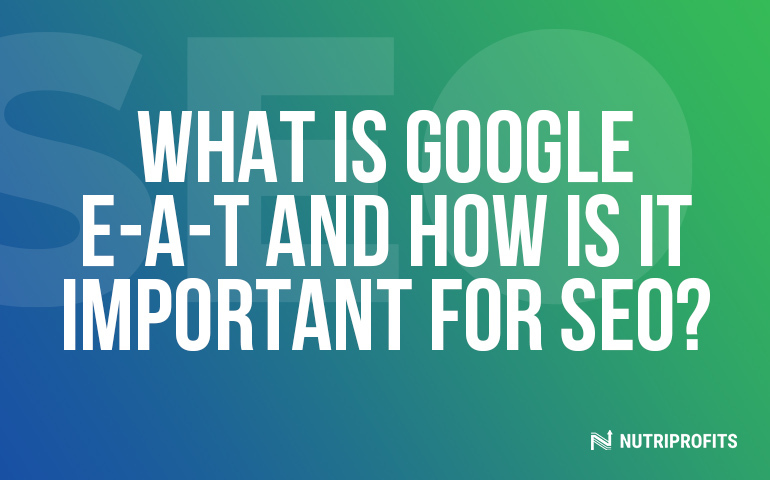
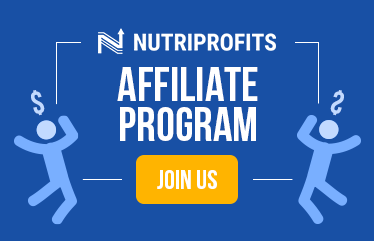
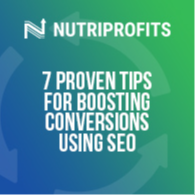
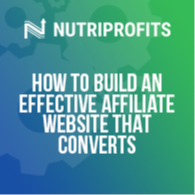

.jpg)
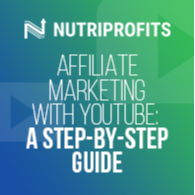
-1-1.jpg)